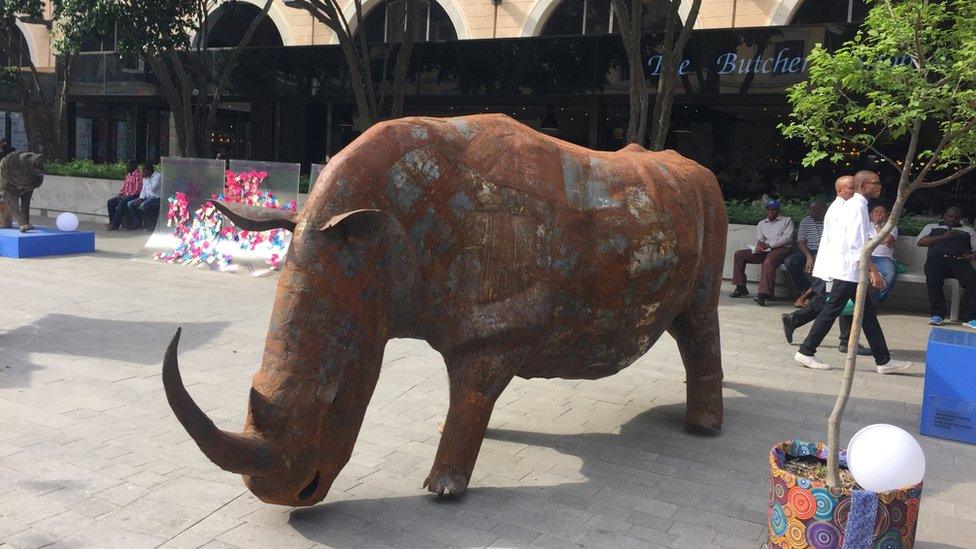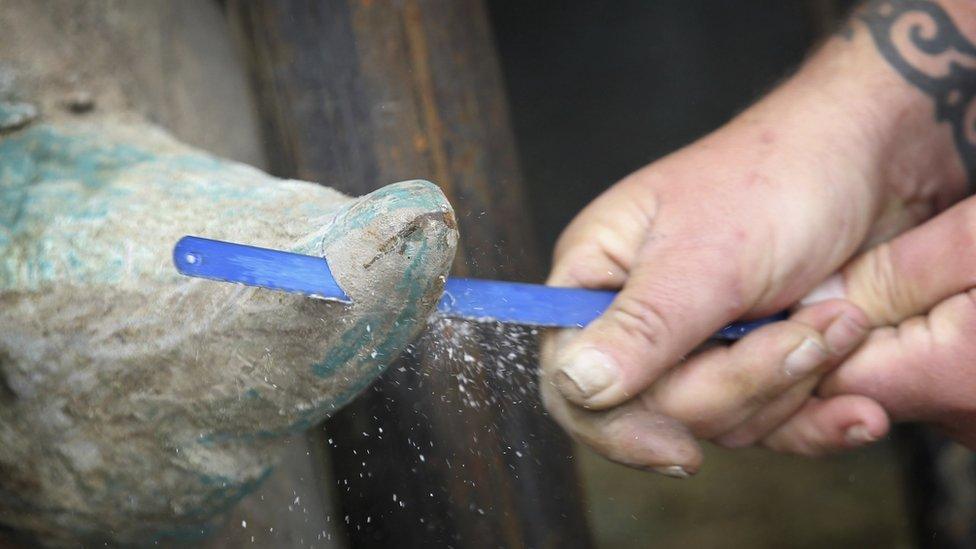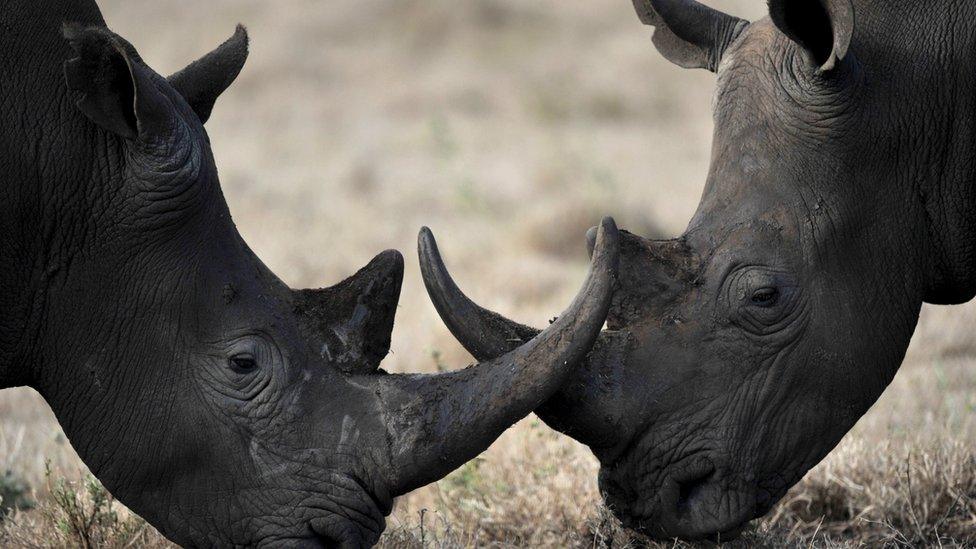Synthetic rhino horn ready 'in two years'
- Published

The question of synthetic rhino horn has been discussed at the Cites meeting in Johannesburg
The man behind attempts to develop synthetic rhino horn has told the BBC that he hopes to have a "bio-identical" product ready to market in two years.
Matthew Markus, CEO of Pembient, believes that introducing a highly similar but manufactured horn could help stem the rhino-poaching crisis.
Here at the Cites meeting the plans have been condemned by conservationists as "too risky".
Campaigners want the species body to ban synthetics from endangered animals.
Rhino start-up
Over the years, the development of human-made alternatives to some natural species has seen some success.
Orchids produced in the laboratory have served as an alternative for collectors while a synthesised version of the chemical that's found in bear bile has been accepted in traditional Chinese medicine.
Now, a number of start-ups are seeking to develop alternatives for rhino horn and elephant ivory.
The most advanced is said to be a company called Pembient, external who believe they are very close to producing solid, horn-like material.
"Earlier this year, we produced low fidelity prototypes, they are solids but they don't have all the properties of rhino horn and we are working now to produce these high quality bio-identical solids," CEO Matthew Markus told BBC News at the Cites meeting.

The price of rhino horn can range up to $60,000 per kg
"The higher fidelity prototypes may take two years and that's unless all this flak scares investors off."
The "flak" that Mr Markus is talking about is the opposition from conservationists and wildlife campaigners to his ideas.
They are concerned about anything that could make the current rhino poaching surge worse.
The number of rhinos killed for their horns has risen dramatically over the past nine years, external. In 2007, just 13 rhinos were killed in South Africa. Last year, that number was 1,175.
At a side event here in Johannesburg, campaigners vociferously denounced the synthetic rhino idea.
"We are very concerned that these synthetic products would provide a cover for illegal trade," said Lee Henry from WWF.
"How are enforcement officers on the ground supposed to distinguish between the two?"
Illicit market
But for Mr Markus, that inability to readily differentiate between his product and the real thing is exactly what he's hoping to achieve.
"This is an illicit market, these people are not supported by states, so here counterfeits especially if they are exactly the same should have a very disruptive effect.

Rhino horns are sometimes trimmed for safety in transport
"The only thing that guarantees that you are getting the product you think you are getting is the product itself, if you can destroy the uniqueness of that product through bio-fabrication, I think that's a win."
Mr Markus acknowledges that his approach is not without risk - but he maintains that the synthetic model has been well scrutinised and is less of a threat than his opponents maintain.
But campaigners are not convinced. They are concerned that the synthetic materials could inspire new markets and make the situation for the rhino even worse.
"In traditional medicines, people prefer wild products, that's seen as more valuable - they don't want products from farms or synthetic markets," said Lee Henry.
"For a species like rhino that are being decimated by poaching for their products, do we want to test this now? I think its too big a risk to take, history has shown that when you create alternative products it doesn't reduce demand for the genuine article."

Rhino poaching has soared over the past nine years
Here at Cites some countries have argued that synthetic products derived from endangered species should come under the regulations of the Convention.
So if something is made from the DNA of a rhino that is on Appendix I, then all trade in those synthetic products should be banned as well.
The Cites secretariat will assess the position but it will be next year before there is any clarity on whether they have the power to regulate or not.
Matthew Markus says he will accept any outcome based on science and impartial regulation. But banning his products, if they ever reach the market, would be a mistake he says, if people are serious about stopping rhino poaching.
"The fastest way to shut a market down is to support counterfeiters and not prosecute them."
Follow Matt on Twitter @mattmcgrathBBC, external and on Facebook, external.